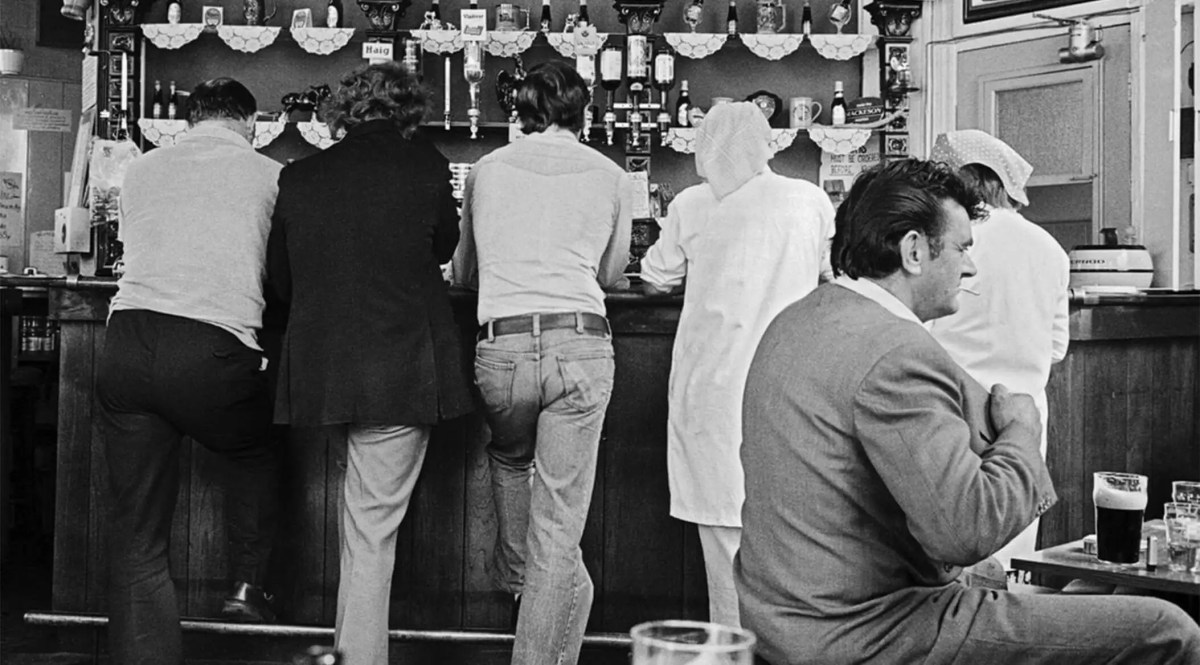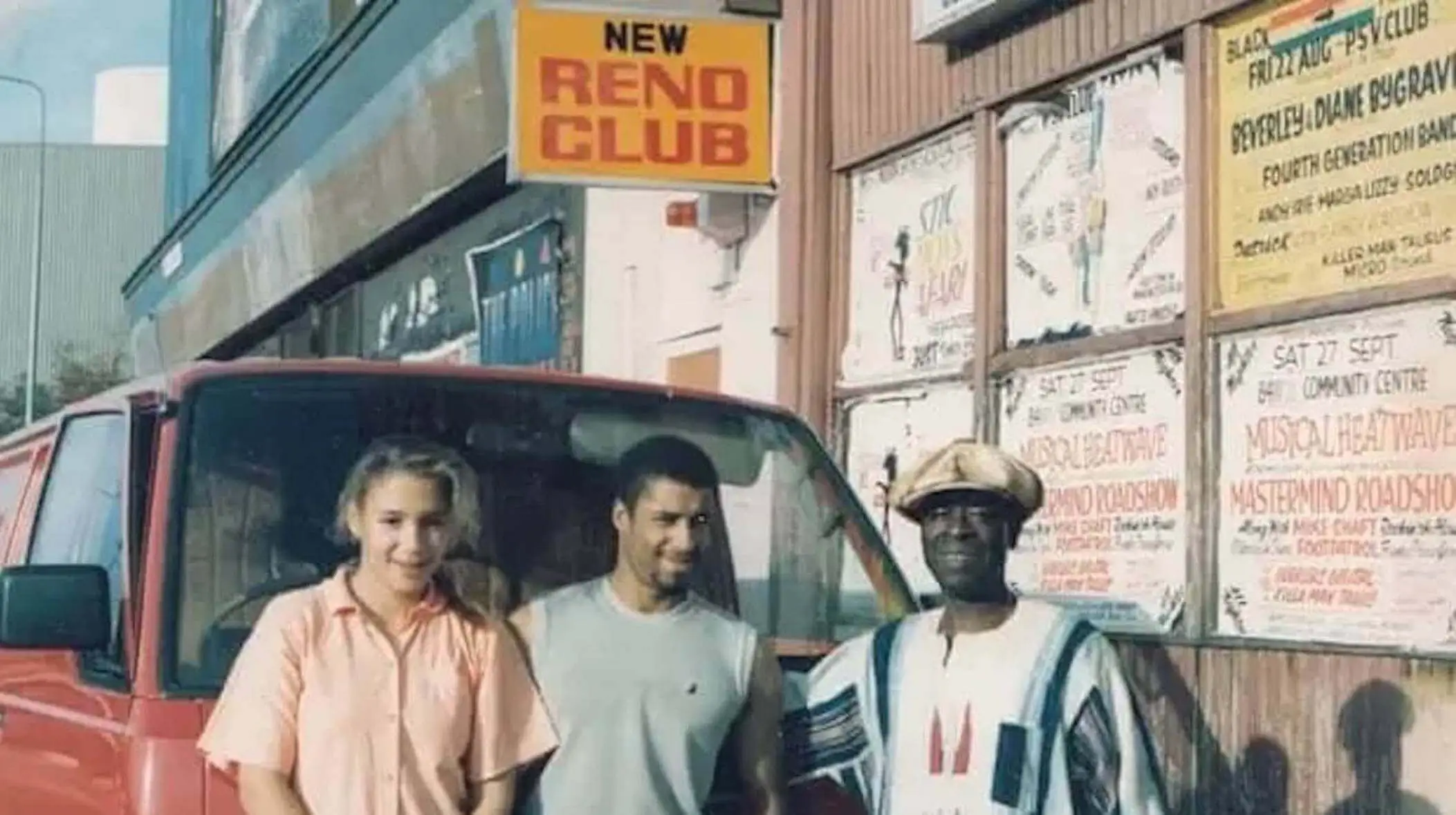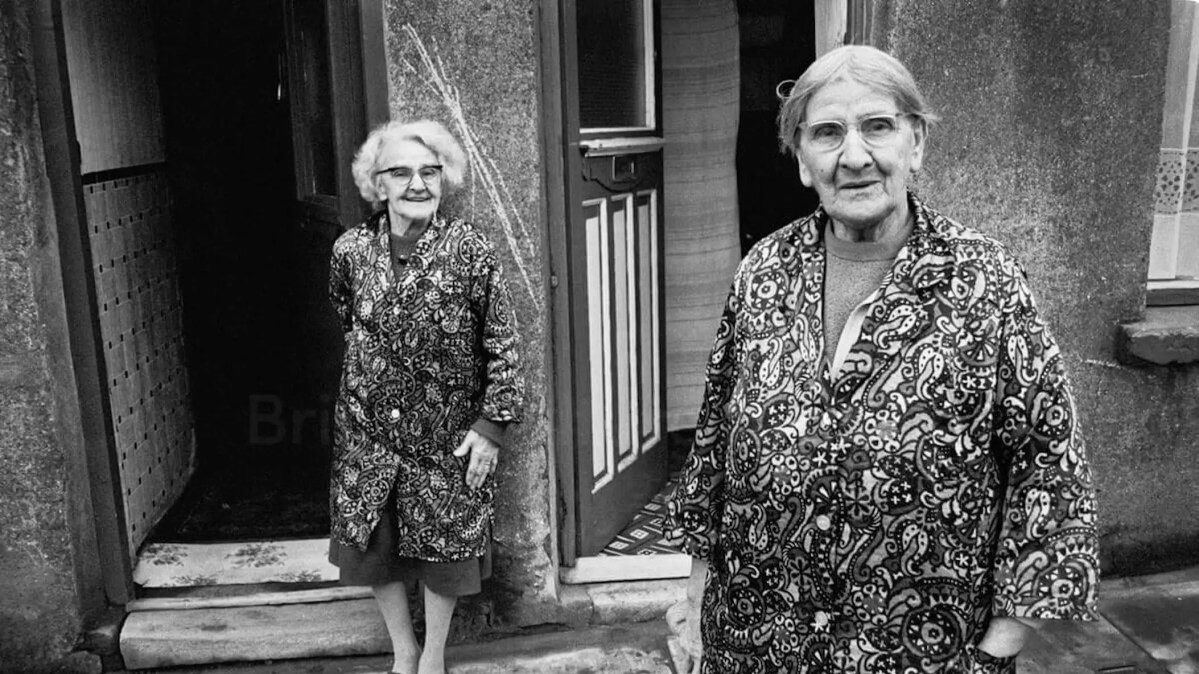

“The Reno,” Moss Side’s legendary late-night soul and funk club, was demolished in 1987. The year prior, the Manchester City Council declared the building that housed the venue unsafe, and both it and its sister club (The Nile) were demolished. The late-night drinking spot near the corner of Princess Road and Moss Lane East was no more.
Mixed Race Communities
An important and often overlooked part of Manchester’s cultural history, the Reno began life in 1962 and soon became an essential social haven for the city’s mixed-race communities. Many of its regulars came not just from Moss Side and neighbouring Hulme but also from Wythenshawe, Ancoats, and many other working-class parts of the city.
Photo © Linda Brogan\@excavatingthereno
Racial Oppression
At The Reno, they found a sanctuary and a place to escape the prevalent racial oppression and abuse they often faced in 1970s Manchester. One former Reno regular recalls being denied entry into city centre nightspots because of having a large Afro hairstyle and being told it was a fire hazard. Corrupt police would hassle young black and mixed-race youths daily, abusing the stop and search ‘sus’ laws to harass and intimidate them.
Sus Laws
A great reggae track of the era, ‘Dem a Sus (In the Moss)’, by the local band Harlem Spirit, called out this discriminatory behaviour and was often blasted out of sound systems in nearby Alexandra Park. The ‘Sus’ laws contributed to ongoing tensions that would eventually culminate in city-wide uprisings throughout the UK in the early 80s.
Photo © Linda Brogan\@excavatingthereno
Kool Kats
During the club’s heyday between 1971 and 1981, it welcomed a great mix of characters – from everyday regulars to flamboyantly dressed girls. Streetwise kids showing off their dance moves, frustrated artists, and weed smokers to Manchester City’s ‘Kool Kats’, as well as the older heads; sharply dressed men in the gambling room playing cards and dominoes. The club was a unique place with its own rules and even had its own successful football team, Afroville.
Linda Brogan: “The closest description I can give is Goodfellas when they walk in, and you’re either in or out. Being our colour was an absolute badge of honour; you were definitely in. The Reno was our theatre.”
Family
“Yes, it may have had a bad reputation at times, but regulars remember it as being ‘like one big family.’ Respect was earned, and lifelong friendships and relationships were cemented here.”
Photo © Linda Brogan\@excavatingthereno
DJ Persian
At its peak, The Reno was one of the country’s top clubs for soul & funk. DJs over the years included its legendary residents Persian and Coolie, fellow DJs Hewan Clarke and Chris Jam and Tomlin (Aka Jam MCs). DJing until five or six in the morning, they would have the dance floor packed, playing the latest US imports straight off the shelves of Manchester’s Spin-Inn records. As it was an unusually late-night club, many more would head back to The Reno after Manchester’s clubs had closed their doors to continue the party and have a smoke until the early hours.
Photo © Linda Brogan\@excavatingthereno
Muhammad Ali
Muhammad Ali famously visited in 1971, as did actors and sportspeople of the era, such as Ray Winston, Clive Lloyd, and Alex Higgins. Factory boss Tony Wilson had his stag do here. He later poached DJ Hewan Clarke for his new club, The Hacienda. It was even rumoured that Bob Marley visited around the time of his performance at Stretford’s Hardrock in 1972.
Photo © Linda Brogan\@excavatingthereno
Excavating The Reno
Linda Brogan is a multi-award-winning Jamaican-Irish playwright who was a regular at The Reno between 1976 and 1983. Linda conceived the idea of digging up the site of the former club, as she wanted to tell her own story about the place and the people who experienced it.
The project “Excavating The Reno” began when Linda interviewed former Reno regulars and collected their memoirs in 2016. After securing funding from Arts Council England, and with partners Manchester City Council and Salford University’s Applied Archaeological Unit, Linda and the team of former regulars started “the dig” on the grassy wasteland where the club was situated, excavating the site over a three-week period.
Photo © Linda Brogan\@excavatingthereno
Memorial Wall
Aside from the physical items discovered during the excavation, Linda is gathering and archiving memories, photographs, and stories from anyone affiliated with The Reno. Additionally, there is a memorial wall honouring those from The Reno who have passed away.
Cultural Importance
“For a club that was such an important focal point for its mixed-race communities, the amazing work that Linda and her team are doing is instrumental in ensuring that The Reno’s historical and cultural significance is documented and preserved for future generations.”
Photo © Paul Wright / British Culture Archive.
You can find out more, get in touch and share your memories of The Reno via the Excavating The Reno blog and website.
You can follow Linda Brogan and the project on social media
Instagram
Twitter
- Article first published
READ NEXT
SUPPORT BCA
British Culture Archive is an independent archive and cultural resource set up through a genuine passion for photography. Since 2017, we have supported British photography by publishing and exhibiting works from photographers and by unearthing and giving a global platform to previously unseen photography.
Our online galleries and exhibitions will always be free for everyone. Public support and funding are vital for us to continue documenting and preserving important photography. If you appreciate our work, please consider donating through the link below.










